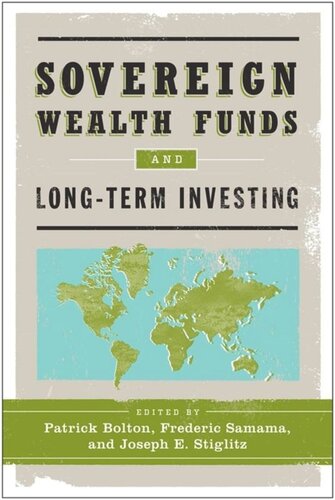

Most ebook files are in PDF format, so you can easily read them using various software such as Foxit Reader or directly on the Google Chrome browser.
Some ebook files are released by publishers in other formats such as .awz, .mobi, .epub, .fb2, etc. You may need to install specific software to read these formats on mobile/PC, such as Calibre.
Please read the tutorial at this link: https://ebookbell.com/faq
We offer FREE conversion to the popular formats you request; however, this may take some time. Therefore, right after payment, please email us, and we will try to provide the service as quickly as possible.
For some exceptional file formats or broken links (if any), please refrain from opening any disputes. Instead, email us first, and we will try to assist within a maximum of 6 hours.
EbookBell Team

4.1
20 reviewsSovereign wealth funds (SWFs) are state-owned investment funds with combined asset holdings that are fast approaching four trillion dollars. Recently emerging as a major force in global financial markets, SWFs have other distinctive features besides their state-owned status: they are mainly located in developing countries and are intimately tied to energy and commodities exports, and they carry virtually no liabilities and have little redemption risk, which allows them to take a longer-term investment outlook than most other institutional investors.
Edited by a Nobel laureate, a respected academic at the Columbia Business School, and a longtime international banker and asset manager, this volume examines the specificities of SWFs in greater detail and discusses the implications of their growing presence for the world economy. Based on essays delivered in 2011 at a major conference on SWFs held at Columbia University, this volume discusses the objectives and performance of SWFs, as well as their benchmarks and governance. What are the opportunities for SWFs as long-term investments? How do they fulfill their socially responsible mission? And what role can SWFs play in fostering sustainable development and greater global financial stability? These are some of the crucial questions addressed in this one-of-a-kind volume.